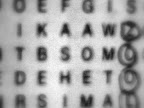Will Post and Others Learn to be More Skeptical of Police Claims in Wake of MPD's Initial Denials That Officer Wielded Gun?
I'll start with how the WSJ put it:
“Don’t bring a gun to a snowball fight.” Indeed. But perhaps “Don’t pull a gun at a snowball fight when everyone there is tweeting it or taping it for their Facebook page.”I'm afraid that sadly captures how it works. The question I'll explore here is, what happens when there is police misconduct but there is no one there to photograph it, and/or the participants aren't twitter fiends? How often is there justice? And my particular area of interest, how do the media try to report it?
I got into this whole thing because the Washington Post's coverage was just being stupid ("WashPost Bit DC Police Claims That Plain-Clothes Officer Never Brandished Gun at Snowfight -- Despite Photos And Admission to Contrary"). In this weekend's case, DC police initially said the plainclothes and/or off-duty officer never held his gun. And the Washington Post, the most dominant media outlet here, reported it that way. Eventually the Post came around.
So even in a case where there's photo, video, and lots of twitter-tastic participants, it was still a struggle to get the media to get the story right.
Does the Post care that MPD told it a story that wasn't true? Will this affect how the Post sees allegations from MPD in the future when there arern't cameras there?
I read stories all the time about various kinds of interactions between police and civilians. And I have to wonder, are the basic facts even being reported correctly? When reporters have few sources on an incident, should they really give dominant weight to a police department that has said untrue things time and again? Or maybe they should add "allege" or "claim" or other less-certain words before anything and everything the MPD tells them. No?
This isn't really supposed to be a post about the MPD or the Post, because really this is a question more generally about how the media and the public should or shouldn't accept police allegations. The point is, media shouldn't always assume the police are telling the truth just because no one has the video to show otherwise.
The police misconduct stories in the past few years that have gone national have mostly, but not all, been ones caught on video. Here are a few of the big ones that pop to mind:
- Duanna Johnson, Memphis. Transgender woman beaten by police officers in a station. On camera. Got some national attention, but not that much.
- Oscar Grant, Oakland. Shot by BART police officer. Recorded on multiple cellphone cameras. Got extensive national attention, especially following demonstrations in subsequent days.
- Sean Bell, NYC. Not on video, but went national -- perhaps given historical scrutiny of NYPD.
- Andrew Meyer (don't tase me bro) -- multiple videos, and overwhelming national attention. The attention wasn't great, though; much of it was just saying that this was a funny story, not that the officers had done wrong. (it turned out the officers were acting within their policy guidelines -- a reminder of the need for stricter guidelines).
- LA immigrant rally, may day 2007 -- Lots of the police attack was caught on video, and it did get some national attention. Nothing like Meyer or Grant, I don't think.
- Danziger Bridge, New Orleans -- shooting of unarmed civilians after Katrina. No video of shooting itself. Got a lot of attention at the time and some follow-up over the years, I believe.
And what we're left with is not enough police accountability (of course, there are many other reasons that police accountability is lacking).
I'll end on this: allegations of police misconduct get a lot more attention if there is video of the incident, and/or if those involved include the Twitter fiends, who will promote their story, doing an end-run around media reports that get it wrong.
That you need a videocamera and/or a lot of Twitter followers leaves most of our country effectively defenseless against police misconduct in the war of the story, and often in seeking justice. A lot of people right in our own city just won't be given the same credence as an un-confirmed tweeter in Tehran will, sadly. That ought to change.
Update: Thanks to City Paper for the link.


1 Comments:
This is why the stories of police illegally seizing video cameras/cellphones used to record them is so disturbing. I would like to see a lot more emphasis on making sure police know that they are not allowed to stop people taping them in public, and very severe punishment for when they do so.
OF course, I would like to see very severe punishment for a lot of things police do wrong, but I am unlikely to get that either.
Post a Comment
<< Home